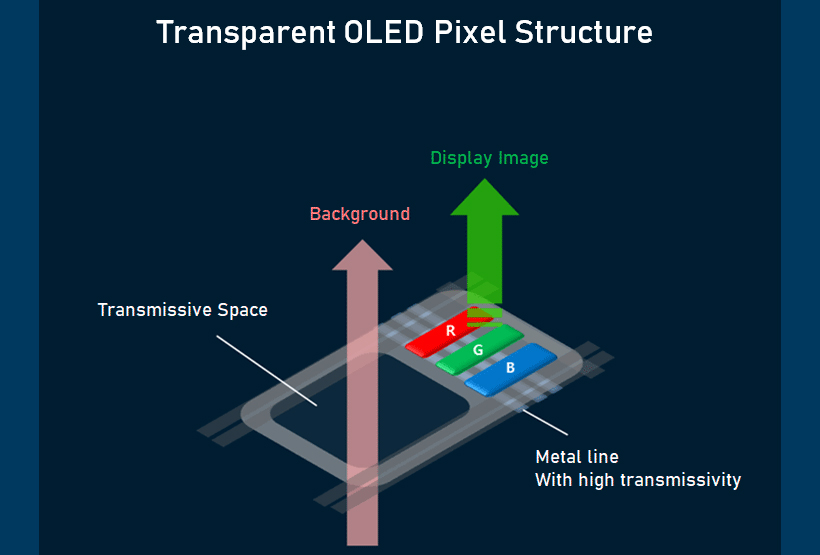
You may have seen transparent displays often in SF movies. Transparent OLED, one of the cutting-edge display technologies, even showcases the back of its screen transparently.
Transparent OLED displays are made up of clear materials and have transmissive space for lights to pass through the pixels, making them look transparent. This technology is expected to be used in applications where users need to see through the other side of a screen, such as replacing the Heads-up Display (HUD) that projects images on the windshield.

Transparent OLED displays are manufactured transparent except for areas that represent colors. This technology is enabled by using optically clear materials for electric lines such as TFTs (Thin Film Transistor) and letting the display showcase objects behind, like transparent glass.
Unlike LCDs, a self-emissive OLED display emits light without a backlight unit, eliminating the need to rely on ambient lights. Furthermore, it doesn’t need a polarizer, an opaque plastic sheet typically attached to displays to prevent the panel from reflecting external light so that it boasts higher transmissivity than LCDs.













